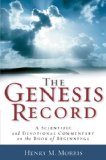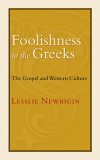Spurgeon on God’s Providence
I believe that every particle of dust that dances in the sunbeam does not move an atom more or less than God wishes. That every particle of spray that dashes against the steamboat has its orbit as well as the sun in the heavens. That the chaff from the hand of the winnower is steered as surely as the stars in their courses. That the chirping of an aphid over a rosebud is as much fixed as the march of the devastating pestilence, and the fall of sere leaves from the poplar is as fully ordained as the tumbling of an avalanche. He who believes in God must believe this truth. There is no standing point between this and atheism. There is no half way between an almighty God who worketh all things according to the good pleasure of his own will and no god at all. A god who cannot do as he pleases; a god whose will is frustrated; is not a God, and cannot be a God; I could not believe in such a god as that.
- From the sermon, God’s Providence, from Ezekiel 1:15-19
Divine Guidance

“‘I being in the way, the Lord led me’ (Genesis 24:27). The servant was actively following the Lord, and therefore the Lord directed his steps. ‘The steps of a good man are ordered by the Lord: and he delighteth in his way’ (Psa. 37:23). ‘In all thy ways acknowledge him, and he shall direct thy paths’ (Pro. 3:6). The Lord leads along the path, a step at a time; but before He can lead us along the path, we must be on the path. When a man is doing God’s will, as best he knows it, and is willing to do His further will even before he knows it, then he will know His will as soon as he need to.” (Henry Morris, The Genesis Record, p.398).

“God’s dearest servants are not always gratified in everything they have a mind to. Yet all who delight in God, have ‘the desire of their hearts fulfilled (Psa. 27:4), though all the desires in their heart be not humored.” (Matthew Henry Quoted in The Life of Arthur W. Pink by Ian Murray, p. 96).
Statements on the Gospel
I could not count the times that I have been reading a passage that I have read many times before, when the text just grabs me! This happened recently while I was reading Paul’s account of his conversion and calling to preach the gospel in Acts 26. Jesus appeared to him and said, “For I have appeared unto thee for this purpose, to make thee a minister and a witness both of these things which thou hast seen, and of those things in the which I will appear unto thee” (Acts 26:16). Before we move to the primary statement in verse 18, let us consider a couple of things from this verse.
Saul was brought to a confrontation with the Lord of Glory, Whom he previously did not own. Saul was made to bow, submit to the sovereign lordship of Jesus Christ. Note that in exercise of His kingly authority (all authority in heaven and in earth), Jesus makes demands of Saul—“I have appeared unto thee for this purpose.” He says that Saul is not free to do as he pleases, rather is under the yoke of Christ. The message of salvation that Saul received was not a message of a personal escape from trouble and trial. It was not a liberation of the flesh to serve self without guilt. It was a message that meant owning the dominion of the Most High and serving Him fervently with his whole person. Paul would later exhort the Romans to offer themselves as living sacrifices, consecrating their whole selves to God.
Jesus called Saul to be a minister and a witness. He was to preach the gospel, evangelize, do missionary work. The words of Jesus constrained him in this work—“To open their eyes, and to turn them from darkness to light, and from the power of Satan unto God, that they may receive forgiveness of sins, and inheritance among them which are sanctified by faith that is in me” (Acts 26:18). The message he had received was the message he took to the world. He saw his work as to turn men from the darkness of their idolatries, no matter how sophisticated, and reprove them of their false loyalties. He declared to them the true and living God, Creator of heaven and earth, and men must “turn” to Him “that they may receive forgiveness of sins, and inheritance. . .”
This gospel message seems lost to many in our day. Salvation is turned into a personal escape and reward. It is counted among myriad remedies for the various problems of modern man. A gospel of decision and choice is foisted upon eager “seekers”. Modern men have tried a number of things to help them and so they will give religion its fair chance. The result of this is individualistic, selfish lives that do not bow to the lordship of Jesus Christ. A religion that gets them where they want to go.
Solomon said, “Where the word of a king is, there is power” (Ecclesiastes 8:4). The gospel is none other than the word of the King, and not surprisingly, it has power. The word for power in Ecclesiastes 8:4 is a word that means authority or bearing rule. The king has authority and speaks with power. The gospel is the word of the King that speaks with power, authority and He is to be obeyed, reverenced, and served.

Along this line, I read another great statement on the gospel the other day.
The church is the bearer to all the nations a gospel that announces the kingdom, the reign, and the sovereignty of God. It calls men and women to repent of their false loyalty to other powers, to become believers in the one true sovereignty, and so to become corporately a sign, instrument, and foretaste of that sovereignty of the one true and living God over all nature, all nations, and all human lives. It is not meant to call men and women out of the world into a safe religious enclave but to call them out in order to send them back as agents of God’s kingship.
(Leslie Newbigin, Foolishness to the Greeks—The Gospel and Western Culture, p. 124).
Heathen Missionaries

In Heathendom every true convert becomes at once a Missionary. The changed life, shining out amid the surrounding darkness, is a Gospel in largest Capitals which all can read. Our Islanders, especially, having little to engage or otherwise distract attention, become intense and devoted workers for the Lord Jesus, if once the Divine Passion for souls stirs within them. Many a reader, not making due allowance for these special circumstances, would therefore be tempted to think our estimate of their enthusiasm for the Gospel was overdone; but thoughtful men will easily perceive that Natives, touched with the mighty impulses of Calvary, and undistracted by social pleasures or politics, by literature or business claims, would almost by a moral necessity pour all the currents of their being into Religion, and probably show an apostolic devotion and self-sacrifice too seldom seen, alas, amid the thousand clamouring appeals of Civilization.
A Heathen has been all his days groping after peace of soul in dark superstition and degrading rites. You pour into his soul the light of Revelation. He learns that God is love, that God sent His Son to die for him, and that he is the heir of Life Eternal in and through Jesus Christ. By the blessed enlightenment of the Spirit of the Lord he believes all this. He passes into a third heaven of joy, and he burns to tell every one of the Glad Tidings. Others see the change in his disposition, in his character, in his whole life and actions; and amid such surroundings, every Convert is a burning and a shining light. Even whole populations are thus brought into the Outer Court of the Temple; and Islands, still Heathen and Cannibal, are positively eager for the Missionary to live amongst them, and would guard his life and property now in complete security, where a very few years ago everything would have been instantly sacrificed on touching their shores! They are not Christianized, neither are the Civilized, but the light has been kindled all around them, and though still only shining afar, they cannot but rejoice in its beams.
Missionary Patriarch—The True Story of John G. Paton, James Paton Ed., pp. 388-389







